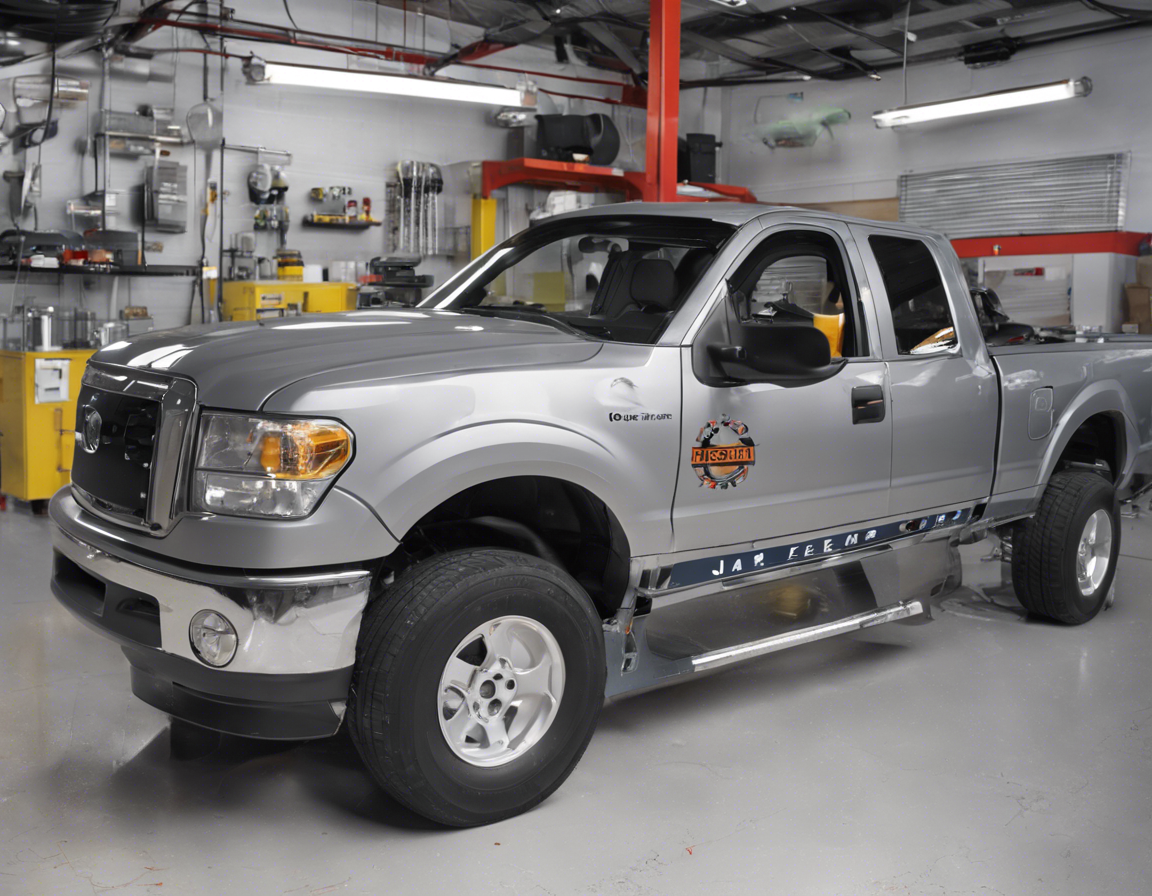Guide to Coolant Leak Sealer Solutions
Introduction
Coolant leak issues can be a significant headache for vehicle owners. Whether it’s a minor drip or a major leak, ignoring the problem can lead to costly repairs and potential engine damage. Coolant leak sealers offer a convenient and cost-effective solution for fixing leaks and maintaining the health of your vehicle’s cooling system. In this comprehensive guide, we will explore the ins and outs of coolant leak sealer solutions, including how they work, their benefits, and tips for choosing the right product for your vehicle.
Understanding Coolant Leak Sealers
What Are Coolant Leak Sealers?
Coolant leak sealers are specially formulated products designed to repair leaks in a vehicle’s cooling system. They work by flowing through the system and forming a seal at the source of the leak. These sealers are typically added directly to the radiator or coolant reservoir and can help stop leaks in hoses, gaskets, and other components of the cooling system.
How Do Coolant Leak Sealers Work?
Most coolant leak sealers use a combination of active ingredients that react with the heat from the engine to form a seal over the leak. These ingredients may include particles, fibers, or chemical compounds that are activated when they come into contact with the air or coolant in the system. Once the seal is formed, it helps prevent further loss of coolant and keeps the system functioning properly.
Benefits of Using Coolant Leak Sealers
1. Cost-Effective Solution: Coolant leak sealers are a cost-effective alternative to expensive repairs, allowing vehicle owners to address leaks without breaking the bank.
2. Easy to Use: Most coolant leak sealers come in a liquid form that can be easily poured into the radiator or coolant reservoir, making it a simple DIY solution for leaks.
3. Maintains Cooling System Efficiency: By sealing leaks and preventing further coolant loss, leak sealers help maintain the proper functioning of the cooling system, preventing overheating and engine damage.
4. Compatible with various Systems: Coolant leak sealers are typically compatible with different types of coolants and cooling systems, making them a versatile solution for various vehicles.
Choosing the Right Coolant Leak Sealer
1. Identify the Type of Leak: Before choosing a coolant leak sealer, it’s essential to identify the type and location of the leak in your vehicle’s cooling system. Different sealers may be more effective for specific types of leaks.
2. Read Reviews and Recommendations: Research different coolant leak sealers online and read reviews from other vehicle owners to determine which products are effective and reliable.
3. Consider Compatibility: Make sure the sealer you choose is compatible with your vehicle’s cooling system and the type of coolant you are using to avoid any potential damage.
4. Follow Instructions Carefully: When using a coolant leak sealer, be sure to follow the manufacturer’s instructions carefully to ensure proper application and effectiveness.
5. Monitor Effectiveness: After applying the sealer, monitor your vehicle for any signs of continued leaking. If the leak persists, you may need to reapply the sealer or seek professional assistance.
Frequently Asked Questions (FAQs)
Q1: Can I use a coolant leak sealer for all types of leaks in my vehicle’s cooling system?
A: While coolant leak sealers can be effective for many types of leaks, it’s essential to identify the source of the leak and choose a sealer that is suitable for that specific type of issue.
Q2: Will a coolant leak sealer damage my vehicle’s cooling system?
A: When used according to the manufacturer’s instructions, coolant leak sealers should not damage your vehicle’s cooling system. Make sure to choose a product that is compatible with your system and follow proper application guidelines.
Q3: How long does it take for a coolant leak sealer to work?
A: The time it takes for a coolant leak sealer to work can vary depending on the product and the severity of the leak. Some sealers may work almost instantly, while others may require some time to form a seal.
Q4: Can I use a coolant leak sealer as a preventive measure?
A: Coolant leak sealers are primarily designed to repair existing leaks. While some products may offer some preventative benefits, it is always best to address leaks as soon as they are detected to prevent further damage.
Q5: Are coolant leak sealers safe for the environment?
A: Most coolant leak sealers are safe for the environment when used as directed. However, it’s essential to dispose of any unused product or empty containers properly according to local regulations.
In conclusion, coolant leak sealers can be a convenient and cost-effective solution for addressing leaks in your vehicle’s cooling system. By understanding how these sealers work, their benefits, and how to choose the right product, you can effectively repair leaks and maintain the health of your vehicle. Remember to follow the manufacturer’s instructions carefully when using a coolant leak sealer and monitor your vehicle for any signs of continued leaking.
His love for reading is one of the many things that make him such a well-rounded individual. He's worked as both an freelancer and with Business Today before joining our team, but his addiction to self help books isn't something you can put into words - it just shows how much time he spends thinking about what kindles your soul!




